Tagged: personal
Fallen heroes
- by Alyson Shane
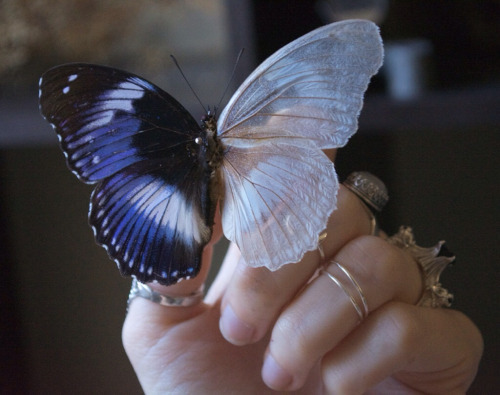
There comes a time in every person's life when they experience a fundamental shift in how they view their parents. A moment when the veneer is peeled away, revealing the flawed, real people our parents are underneath all the assumptions we make about them as their child.
In the most recent episode of Hidden Brain (a great NPR podcast I can't recommend enough) the host was interviewing a woman whose view of her father changed when she was twelve years old.
Someone had called the house looking for her dad, and she answered the phone to say he wasn't around. She remembers that the caller sounded old; his voice shaky. He was upset. He said:
"Your father stole my life savings! Your father is a crook!"
Those few words fundamentally changed her relationship with her dad. She no longer saw him as a charismatic, charming artist. She saw him for who he really was: a liar, a con man, and - it seemed - a thief.
My moment of reckoning with my own father didn't happen until I was in my mid-twenties. I was going back through some old emails, looking for something I'd intended to reference at my next therapy session, I think, and I came across an email exchange from July of 2010.
My dad was upset that I was quitting my government job to attend university. Over the course of several he emails made it clear that he was angry at my decision, and took issue with my reply, where I told him (in so many words) "I'm an adult and you need to respect my decisions and not speak to me so disrespectfully."
Seeing his response, which follows, shook me to my core:
Wow, in nut shell, write me off. You never contact me unless you want something from me. You've forgotten my birthdays, never see me on father's day, etc.* You obviously are very self absorbed and unless I serve some purpose you have nothing to do with me. When was the last time you called to see how I was doing. Can't remember can you. How is my back, don't know do you. Don't care do you, typical.**
I include the text above because, until that moment, I hadn't been presented with an example of how my dad handled conflicts in our relationship. Sure, I had memories of angry emails, and of him hanging up on me when he got worked up, but I'd never been faced with real evidence of how my father treated me and spoke to me since we'd become estranged a few years earlier.
Until I rediscovered that email I'd been under the impression that I was in therapy largely due to my relationship with my mom. That it was her abuse, gaslighting, and manipulation of everyone around her that was the primary contributing factor to why I had severe anxiety and extremely low self-worth.
Like the woman in the Hidden Brain episode, seeing those words changed how I viewed my father.
Until then I'd always viewed him as a tragic hero. A guy who got married too young, was tricked into having too many kids too young, and was trying to do the best he could in a marriage where his spouse would routinely brag to her kids that "your dad can never leave me because I'll take everything."
The idea of my dad as a tragic hero was the prevailing impression I'd gotten from talking to our family, and the impression I developed as I became the target of my mom's anger as a teenager and my dad tried, again and again, to stand up to how she treated me.
Until I read that email I'd assumed that my dad was, at worst, a cowardly hero.
Someone who tried and failed to do the right thing. A man who got stuck in a bad situation and was trying to make the best of it because he didn't have the willpower to man up and leave.
I remembered my dad as someone funny and kind. With a temper, sure, but as someone who was more likely to start crying during an argument than to hurl insults and lash out angrily.
Despite everything that had happened, the teenage years spent largely in the counsellor's office because I was to distressed with my home life to go to class; his inability to convince my mom to let me move home so I could attend university and not sink into debt; and even the estrangement because he refused to have a relationship with me where my mom wasn't physically present... I still saw my dad as a hero.
Maybe a tragic, or cowardly one, but a hero nonetheless. Because he did the best he could to be supportive and to help me become a happy, well-adjusted person.
At least, that's what I'd told myself and fully believed until I discovered this series of emails.
The last time I communicated with my father was earlier this year. My mom had decided to run for school trustee in the recent civic election and my dad was struggling with the basics of setting up a website, social media profiles, etc. - so he reached out to me.
"Not as my dad, but as a potential client."
I don't want to go deep into my feelings on this issue, but suffice it to say that my mom is about as unqualified to hold public office as they come, and I had no interest in helping her.
So I wrote him back.
I wrote long email explaining how I felt, reiterated the situation that had caused us to become estranged in the first place, and laid out the things that needed to happen for me to feel comfortable re-engaging in a relationship again.
I ran it past John and a few people whose opinions I respect, who told me I sounded reasonable. Firm, but reasonable.
My dad, for what it's worth, never wrote back.
What I've learned in the years since I found those emails is the ugly truth that every child eventually discovers about their parents: that they aren't perfect, and they're just as capable of being petty and mean and immature as anyone else.
I obsessed over the 2010 emails for a while. I read them and re-read them, almost unable to comprehend that the person I had believed in and loved unconditionally could also be the same person accusing me of not caring about them and being self-centered because I pushed back and asked for respect and boundaries.
I brought the emails to therapy and I cried like I was in mourning.
Which I suppose I was, in a way. I was mourning the loss of the idea of my father. The loss of the idea that he was the person who always believed in me and stood up for me, and who respected me and wanted me to be happy.
As kids, we idolize our parents. We look up to them. We believe them to be infallible, and when the ugly truth of who our parents really are comes crashing down on us it's our responsibility to grapple with those feelings.
It becomes our job, as their children and as adults, to make sense of the contradiction between who we believed they were, and the person our parents really are.
Like the woman in the Hidden Brain episode I had to come to terms with the fact that my dad, like most people and most parents, was not who I believed him to be.
In the episode, the daughter eventually reunites with her father, though their relationship is strained. They only talk by phone, and after her dad suffers a fall and winds up in an assisted living facility, she visits him only once before he dies.
During their last meeting he tells her "I'm sorry for all the things I've done" and the daughter is left wishing she'd asked her dad: "what things? What were you sorry for?" before he died.
When she recalls this to the host, she sounds distressed. Like there's something nagging at her; something unresolved lurking beneath the surface. She's struggling with the fact that her dad is gone forever, and all she's left with are the remnants of who she thought he was, who he turned out to be, and a series of items and leftovers from his life that she must piece together to start to fill in the blanks.
I know these feelings. My dad is middle-aged; his health has never been great. He has back problems and high blood pressure and high cholesterol and drinks and smokes too much. I'm acutely aware that he could have a heart attack or a stroke at any time, leaving me with only the scraps of his life to glue and stitch together to create an image of who he really was.
Sometimes, when I find myself becoming consumed with this looming reality, I feel an urge to pick up the phone and say:
"What are you sorry for, Dad?"
But maybe I don't want to hear his answer after all.
*I forgot one birthday/Father's Day when I was 16 and not living at home because of conflicts with my mom.
** What my dad stated here is also untrue; I regularly called and emailed him, and we went out for lunch together every so often right up until we stopped speaking.
Sometimes you just need some kind words
- by Alyson Shane

I had a rough day today and I was carrying it around all night even though I didn't mean to. We went to the mall and I bought my foundation from Sephora and John shopped for shoes and even though usually I don't mind going shopping my head was in the clouds the whole time.
I kept forgetting where we were going and where we'd been and kept losing track of what John was saying and losing my train of thought as well. I stopped mid-sentence more than a few times because I'd lost what I was saying.
John even commented that I was quiet which, if you know me, is unusual.
I just have a bad habit of letting small anxieties pile up and not knowing how to talk about them, I've realized. Some things aren't blog appropriate or public-facing appropriate because they're just wishy-washy stress things. Those up-and-down stresses that you know are fleeting but still eat you up inside anyway.
I'm getting better at talking about big-picture stuff but those things are still a challenge and nowadays I have to pep talk myself so that I can do something as simple as open up to my partner, who I live with and share my life with and spill my guts to regularly.
Today I sat on the floor in my office and pep-talked myself when I heard John get home: "it's okay, he's not mad at you for being anxious."
And we talked and I got everything I was carrying around, big and small and stupid and dramatic and hurtful and upsetting and inconsequential and over-reactionary, off my chest but it was all still bouncing around like a tennis ball inside my head for the rest of the night.
But luckily I have a good man who loves me and takes care of me, so after a nice but quieter shop than usual he ordered some butter chicken and vegetable korma from my favourite Indian place and put on The Sopranos and made me a cozy spot on the couch.
Then halfway through the episode he paused it and looked me in the eyes and told me that no matter what ever happens to both of us, no matter where our lives go, how stressed out or overwhelmed we may be, he's always proud of me for getting up and giving everything my best every day.
I cried then and it's hard not to cry now thinking about it, because sometimes you don't even know the words you needed to hear to start to feel better until someone says them.
Spence Street
- by Alyson Shane

I first moved into Spence St with Gordon. I needed a place to live that was closer to the University of Winnipeg and also that didn't cost me an arm and a leg. Until then I'd been living in a tiny and beautiful but wildly overpriced one-bedroom apartment in The Roslyn in Osborne Village, and I had to worry about putting myself through university so my gorgeous apartment had to go.
I moved in with Gordon and promptly realized that while he was a wonderful and charming human he was also a bit of a hot mess. Which isn't saying much, because I was also a hot mess at the time.
Inevitably our hot-mess-ness (especially me; I was a horrible, anxious mess at this point) spilled over and our brief, dramatic, sometimes wonderful but mostly stressful time together came to an end.
Then Ty moved in and the place I lived became my home. It was our home for a while and I made some of my best memories there.
I loved the gymnasium flooring that was beat to shit but still beautiful. Especially around the doorway to the living room where the wood had seen the most wear and tear. It showed the signs of lives lived there, moving in and out.
The vines grew over the bedroom window during the summertime and I loved how bright and green the room was on the weekend mornings when I'd sit in bed with a coffee and the front page of The Washington Post in my laptop.
The day we brought Toulouse home. He and our other cat, Ford, didn't get along at first, but his dopey and persistent personality won through and they became bros in the end. Eventually I wound up with T. and Ty took Ford when we split, but in the end I think it was for the best since Toulouse was always my baby, anyway.
That April day when I spent a spring day in-between university exams listening to NPR and painting the kitchen. Those old walls were so beat-up and stained. I must have painted for over eight hours to get it all done.
One time during a horrible winter blizzard we spent the weekend huddled inside playing Final Fantasy IX, eating grilled cheese sandwiches and drinking spiked hot chocolate.
I miss how the street looked as the seasons changed. The way the canopy of leaves looked over the street in the summertime. I loved learning the patterns of the neighbours, the cars, the people.
I had a raised bed in the community garden behind my building. I gardened there the first summer John and I were together and he biked over from his house in Wolseley with a bunch of gardening supplies hanging from his handlebars for me.
I remember putting together IKEA furniture on the floor in the living room. John and I drank caesars and listened to Here I Dreamt I Was an Architect by The Decemberists and I think I cried.
I must have cried.
Because just like the neighbourhood, my apartment on Spence Street changed.
Ty moved out and I went back to having a roommate. Jamie moved into our old bedroom and I moved into our old office down the hall; my old room when Gordon and I had lived together. I felt like I'd come "full circle" in my strange, old little space.
At this point my memories of Spence Street started to change.
What stands out to me most now is the way the wind blew through the window next to the bed, and how it smelled at night before we went to sleep.
John read to me before we went to sleep at night and we read a devastating book called Reunion by Alan Lightman. I started re-reading Cities of the Interior by Anaïs Nin, but got weary with her flowery prose and started reading Hemingway instead.
Jamie and I had opposite schedules so most of our interactions were comings and goings. A wave in the hallway. A "good morning" as I left for work. A few sessions spent binge-watching The Knick on the couch in the living room.
I gardened throughout the summer, had friends over as usual, and ate too many samosas from the Rubbermaid Tote that usually sat on the checkout counter at the sketchy corner store.
But I didn't live on Spence Street much longer after that.
Eventually it became apparent that the amount of time we were spending together didn't warrant the commute between our homes, so I moved in with John and we've lived together here ever since.
I love living here in our hippy neighbourhood, with our garden and our bedroom and our sunroom and our mornings spent singing songs and cooking breakfast together in the kitchen on the weekends. I wouldn't trade this for the world.
Yet every time I walk by Spence Street I feel a tug in my heart. Sometimes I walk by my old building just to feel the familiar pull of home.
It's still a little strange to look up to see the living room light on and know it's not mine.
I guess you could say I read a lot
- by Alyson Shane
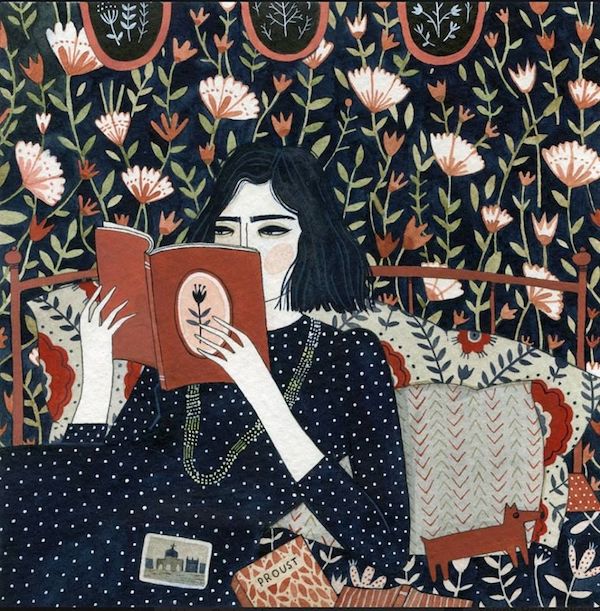
I'm finishing up The Geography of Nowhere by James Kunstler which is a history of urban design and development in America from the time of the first settlers.
I've just started Garden of Eden which is Hemingway's final, unfinished novel and spoiler alert it's amazing.
I recently finished reading Ubik by Philip K. Dick for our scifi book club.
John and I are reading Mrs. Frisby and the Rats of NIMH as our bedtime book.
I regularly read census documents, stats, peer-reviewed papers, and annual general reports as part of my efforts to understand policy and build well-informed opinions on the topics I'm passionate about.
I just finished reading an amazing manifesto called The Great CEO Within (formerly 'Founder to CEO') which is a terrific read for anyone running a company.
I'm about to start a new business book called Crossing the Chasm that I'm pumped about.
I review our client's content and proofread major pieces of copywriting, contracts, and internal documentation.
I have Feedly lists of articles and resources from businesses websites relating to Starling's industry, tools, and platforms, as well as business and professional development feeds.
I read articles from HackerNews several times a day.
I review articles in other neurotically-organized Feedly folders for all our clients' industries for new content ideas and trends.
It can be hard to find enough time to read all this stuff, especially things that aren't related to clients or running my business. But I carve out the time because being informed is important, dammit, and there's no sense in having an opinion if it's not going to be a well-developed one.
You guys already know how I feel about that.
Oh, and I still read the only blog that truly matters.
Because you gotta stick with the classics.
Working from the couch today
- by Alyson Shane
I woke up at 3AM and found myself doubled over with some of the worst cramps I've had in a while. I slid out of bed so as not to wake John, accidentally kicked Toulouse who was lying at the foot of the bed
(it's his new favourite move and I'm feelin' it)
popped a few Naproxen from the cabinet in the bathroom, heated up my hot pad in the microwave, and curled up on the couch in the TV room to doze to some Brooklyn Nine-Nine. Unfortunately I wasn't able to get much sleep and wound up lying in bed till almost noon binge-watching Netflix and thinking wistfully of being pregnant or menopausal in order to avoid this painful scenario.
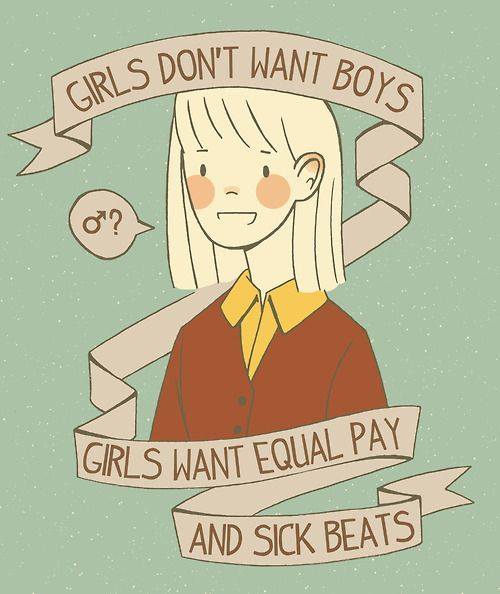
I dozed a bit which gave me the energy to move back to the TV room with my laptop, thermos of coffee (thanks John) and my laptop
and have been doing some light work since then.
Replied to some emails. Scheduled some stuff. Edited some articles.
And as I was sitting here in my PJs, greasy tank top, top bun, no makeup and hot pad that goes back into the microwave every 15 minutes or so I was reminded of the days when I used to work in an office
and how shitty it was to have show up somewhere and pretend like I was fine even though I felt like doubling over in pain and going to the bathroom 24/7
because most workplaces don't take things like menstruation into consideration when crafting their workplace policies
because - I mean, it's just your period, right?
Except it's bloody well not.
Yeah getting yr period is an inconvenience in general, but having to be productive and push through abdominal pain always felt unnecessary and unfair.
How many women reading this have "called in sick" from work because their cramps were so bad? I'd wager at least 90% of us based on convos I've had with other lady friends.
And the weirdest part is that - in my experience anyway - it's not usually our male colleagues who make it weird about taking time off during yr period.
It's almost always other women.
I can't begin to tell you the amount of times I've heard stuff like:
"It's just your period, not an excuse to slack off"
(way to value judge, Susan)
"Every woman gets her period so why should yours be special?"
(taking time off because you're in pain isn't "special treatment" Brenda)
"I'm able to work through my cramps so you should, too"
(fuck you, Leslie)
I've always been of the mindset that if you need to take time off, take the damn time off. Don't kill yourself for a job or employer, especially when they don't respect you enough to allow you to take a damn day off because your body feels like someone's punching you in the gut repeatedly all day.
Which probably explains a lot about why I'm better off working for myself tbh.
Now if you'll excuse me I'm going to go lie down and binge-watch Comedians in Cars Getting Coffee and curl up over a hot pad.
This shit is brutal.
* Sorry to all the Susans, Brendas, and Leslies out there - these are example names and not actual shade at any of you. I'm sure you're all lovely people.
Yesterday was Matt Good's birthday
- by Alyson Shane
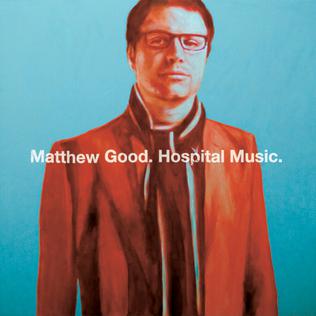 Happy belated birthday, Matt Good. Thanks for writing so many songs that somehow resonated with me even though we've never really met
Happy belated birthday, Matt Good. Thanks for writing so many songs that somehow resonated with me even though we've never really met
(signing a CD on a tour bus after a show doesn't count, I don't think)
and for being the first musician to say something that moved me.
Matthew Good Band (MGB) played a lot on Much Music when I was a kid and like any good Canadian kid I owned and wore out the CDs for Beautiful Midnight, The Audio of Being (and the Raygun EP which is still a personal favourite.)
But as good as the alt-rock stylings of MGB were they didn't hit you. Never washed over you and made you go
oh shit.
In 2003 Avalanche, his first solo album, was released and though everyone went nuts for Weapon and In a World Called Catastrophe (a great song) I'd go nuts for Lullaby for the New World Order and While We Were Hunting Rabbits (which still gives me goosebumps every time I listen)
and, predictably, Avalanche.
Oh my god that song.
I self-harmed as a teenager and I'd sit in my bedroom and feel hopeless and cry and cut and silently scream along to that song. I was sad and I didn't understand why and there was something about that song that said
I know. I know. I know.
and I thought he knew. I felt like, in some abstract, messed-up way, Matt Good understood what it was like to feel alone and not understand how or why you felt so hopeless. So miserable.
And then Hospital Music came out.
This was in 2007 when I was living in Hamilton and was a hot, hot mess. I was in the wrong relationship and didn't feel like I had any supports and didn't know how to cope so I drank and got fat and would daydream about coming home to Winnipeg and getting wasted with my party crew because everything felt horrible and out of control and getting messed-up felt like the only way to smother those feelings.
And then this musician I'd admired and respected for years came out with an album he wrote as the result of a mental breakdown, suicide attempt, and his subsequent time in a psychiatric ward and I realized that he actually did know those hopeless feelings.
Someone else out there knew the profound, isolating sadness I'd been carrying around and didn't have the words to convey.
And of course that didn't magically make things better.
My bad relationship still fell apart.
I still had to move back to Winnipeg.
My home life was still a mess.
I was still miserable and confused.
But at least I could turn on my iPod and listen to songs like Champions of Nothing and 99% of Us Is Failure and lose myself in someone else's explorations of their own misery and confusion.
And this weird and foreign feeling that I wouldn't really discover or understand for another several years would wash over me. And for a few minutes, sometimes even just a few seconds
I'd feel like maybe things would eventually be okay.
In years to come I'd fall in love with the music of Leonard Cohen, John K. Samson, Joni Mitchell, Bob Dylan, Simon and Garfunkel, and others, but Hospital Music stuck with me, even though I rarely listen to it these days.
Some albums are like that. They're for a specific time. Place. Feeling.
But sometimes, when no one's around, I'll pull out the Hospital Music vinyl and look at the familiar cover: blue with the orange and red and brown. Colours I've stared at so many times before.
I'll put it on the turntable
and I'll have a good cry to the soundtrack of my many heartbreaks.
Father's Day is always a weird one
- by Alyson Shane
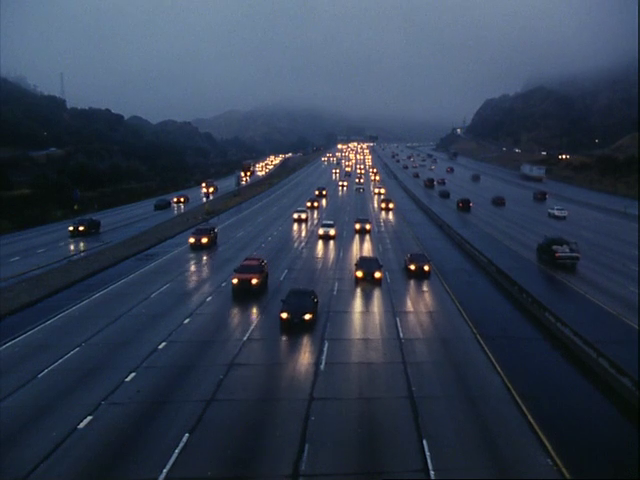
Because on one hand there are so many things I want to say about my father.
Some good. Most not-so-good.
It used to be the other way around, but the distance and time has highlighted the ways in which I compensated for his failures in my own mind. How I built up this image of a person, some broken-down dude who was just trying his best in an unhealthy marriage, to fill in the space created by two individual parents who fundamentally weren't any good at what they were doing.
Deconstructing that idea has been the hardest part of the last few years.
Thank god for therapy, loving relationships, and good friends.
Growing up I spent a lot of time in my Dad's office for a lot of reasons. Sometimes waiting. Sometimes crying. Sometimes just hanging out because I had nowhere else to go.
During those times I always seemed to find myself staring at one little print-out on his wall in particular. It went something like this:
"Kid, age 3: My daddy can do anything!
Kid, age 9: Dad? Oh, he knows some things I guess.
Kid, age 16: My dad doesn't understand anything that I'm going through!
Kid, age 25: My dad knows some stuff, sure. He's got some good advice.
Kid, age 45: Let's ask the Old Man for his thoughts on this one.
Kid, age 65: I wish I could still ask Dad about this."
At the time I'd read it and it would make me think about the fleeting nature of our relationships. How quickly we grow and change, and how soon my dad would be gone, and how important it was to make the most of the time we both had together as parent and child.
I don't know what he thought when he saw that poster, day in and day out.
I don't know if his thoughts about it changed as his kids got older.
As he got older.
After he told his oldest child and only daughter to "have a nice life."
On Father's Day I think of that poster, and of my dad.
I wonder what he would ask me, if he could.
Because I have a laundry list of things that I'd ask him.
Every year on Mother's and Father's Days I make a donation to Big Brothers and Big Sisters of Winnipeg. If you also have family issues that get you down, or if you feel like your parents failed you and wished you'd had some better role models growing up, please consider donating.
I don't talk about suicide a lot
- by Alyson Shane
 Mostly because it scares people.
Mostly because it scares people.
They don't know what to say, do, how to react to the reality that someone they love and care about has seriously considered removing themselves from existence because
the weight of the world is just too much to bear, sometimes.
And if you're not the kind of person who can look at suicide and say
"yeah, that makes sense. I can see how that can feel like an option."
Then it can be hard to understand where those feelings come from.
For me, suicidal feelings have come and gone like the tide. Sometimes they're stronger; when the tide is in. When the tide's out, they're just a nagging thought in the back of my head. My darkest fears are out to sea.
But, like the ocean, they're always there.
John and I talked about Kate Spade last night, and this morning as we were talking about the news of Anthony Bourdain's suicide, and how the news made me feel, and he said:
I think your suicidal thoughts are a holdover from your family. You went through a lot of trauma and you can learn to put these thoughts and feelings down, just like you've put so much of your trauma down in the last few years.
And though he meant well, I felt like I was hitting the same wall that so many people who struggle with these feelings come up against: the people we love rationalizing away our irrational feelings for us because they love us, and because they're scared.
Telling us that suicide is cheap, cowardly, and selfish.
That the people who take their own lives have no regard for how it impacts other people.
That we should want to cling as desperately to life as they think we should.
That if we just worked a little harder, tried a little more... then we wouldn't feel this way.
And maybe they're right. I don't know.
But hearing those things doesn't make me want to reach out. It makes me want to retreat further into myself. To not confide.
Because hearing someone - anyone - say "you can get rid of those thoughts if you just worked harder" makes me feel like a failure.
Because hearing someone - anyone - say "your life is so good, though. You have no reason to feel that way" makes me feel like I don't deserve what I have.
Because hearing someone - anyone - say "suicide is a cowardly move that doesn't take how other people feel into consideration" makes me feel like - well, I'm guess I'm a coward for feeling this way, so what does it matter?
Which, I assume, is how people like Kate Spade and Anthony Bourdain, who were so famous, so loved, so admired, and so cherished by thousands, maybe even millions of people
could feel so profoundly alone and misunderstood
to the point where they made that final decision.
It's got me thinking that maybe addressing suicidal thoughts isn't about "fixing" people. Maybe the people who have suicidal thoughts aren't "broken people" who need to be "fixed."
Maybe they're just other people who are wired a bit differently, and who need our support.
Just like our society is working to support people with other types of mental illness, LGBTQ people, and people with mental and physical disabilities, maybe it's time we started working to just support the people who struggle with suicidal thoughts.
Not fix them. Not make them better.
But just accept that some of us just are this way. This is our reality.
It doesn't make us bad people
or cowardly people
or selfish people.
At least, not any more so than the average person.
When we reach out we're not asking for someone to solve our problems.
Hell, we're often not even looking to "solve" it, ourselves.
We just need a life raft when the high tide comes in.
If you're feeling suicidal, please talk to someone. Call your mom, your boyfriend, your best friend, or, if you're feeling too overwhelmed, the Manitoba Suicide Line at 1-877-435-7170 or call any of the other 24-hour crisis hotlines to get help.
Plane thoughts
- by Alyson Shane
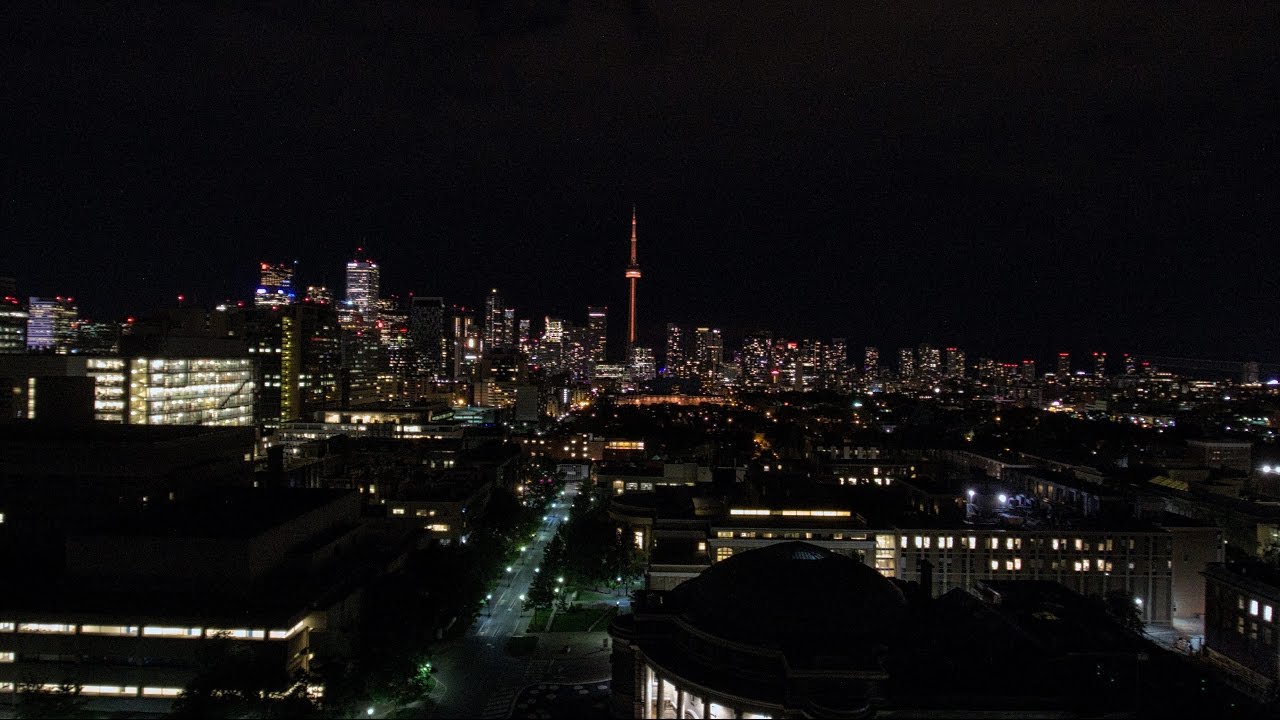 I'm on a flight right now.
I'm on a flight right now.
Sitting in a middle seat between a quiet dude and a lady with a baby with big brown eyes. The baby keeps grabbing my hair a bit and pulling, which hurts but not too much, so I'm not too bothered.
We've been in the air for a few hours and I've finished reading The Handmaid's Tale, which is the book I brought for the trip. I've read it before, but it's been nice to revisit it given the current political climate and recent tv series starring Elizabeth Moss.
Margaret Atwood manages to be so quietly sinister in her writing. I forgot how upsetting this book was.
But now that I'm done I have nothing to do, so I'm writing this and looking over the dude's shoulder out the window.
(I covet window seats, but I didn't book these so it wasn't up to me.)
We're descending into Pearson Airport right now and I can see Toronto in the distance. The sun is setting and it's misty. I can see the dim outline of the CN Tower against the misty lake.
There's a big, wide highway that leads from a suburb
(Mississauga? Brampton? Oakville?)
into the heart of the city. Like a big, thick vein.
An artery for cars.
I used to know the names of these streets, once. I pored over Google Maps, memorizing the streets and picturing myself walking down their sidewalks.
Once upon a time I daydreamed about disappearing into this big, noisy metropolis. Forgetting my name, history, family.
All the things I knew or believed about myself.
Starting over.
Every city has that appeal for someone, I suppose. People looking to start over. For an opportunity. A big break. A culture shock.
Or just to get out of their own damn hometown.
Toronto used to be that to me, once. I was obnoxious with how much I wanted to live there. How I compared it - unfairly, of course - to Winnipeg.
(How annoying I must have been.)
It's weird to see it now and feel that same familiar pull. Like a fish hook in my navel, pulling me towards those towers of glass. The possibilities.
But we're about to land and if I'm being honest I can't wait to get back to Winnipeg.
I miss home.
Stories from Caye Caulker, pt 5: The Wedding
- by Alyson Shane
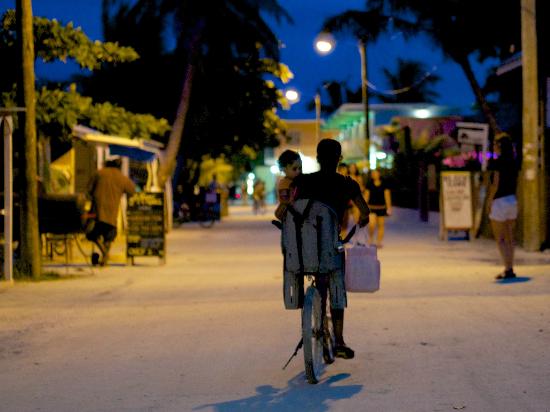
On our second-last night on the island we finally decided to go to Pippy's restaurant.
Pippy (pronounced Pépe) spends his days hanging out in front of one of the Chinese grocery stores with a menu in his hand heckling people to go eat at the restaurant where he works, telling them about the day's specials.
It was getting dark and we'd just finished watching the tarpin over by Tarpin Watch, which is a dock on one end of the island where a bunch of huge tarpin congregate
where you can buy bags of anchovies for a few bucks and when you pinch them between your thumb and forefinger and hang your hand over the dock the wild fish will jump up and take it from your hand
and I was ready to eat, so when we walked by Pippy and he hollered at us about the conch soup we were like
"fine, okay. Take us to the restaurant."
He starts walking us down a residential street with no restaurant signs to be seen and it's getting dark and I'm wondering where the heck this restaurant is
and we round a corner and find a picnic shelter with a few picnic tables and some rowdy folks enjoying some amazing-smelling food.
They were finishing up but stayed around to chat for a bit. Their names were Jen, Brian, Zane, Nick, and I think we also met another Jen and Shawn that evening, and an older lady named Kale and her husband Ricky Lee, and we all bonded over being from cold places.
Jen and Brian were on the island to get married and invited us to their wedding the next day which of course we agreed to. They went on their way and we stayed at Meldy's (the restaurant's name) to finish eating some of the best damn curry shrimp I've ever had.
Afterward we were treated to a series of rum punch drinks courtesy of a young Belgian couple we ran into while buying beer from the store. Her nipple piercing was infected (!!!) and we helped them buy Hydrogen Peroxide so they made us drinks as a "thank you"
(people are so nice on vacation!)
But after a few of those I was feeling tipsy and needed a snack so we walked up Front St to a street vendor selling the best damn burrito you'll ever eat, and a golf cart pulls up and we hear
"Hey John and Alyson!"
and it's Jen and Brian and Nick and Zane on the golf cart and Pippy's on the back and we hop on and go up to the street and party with them all night. Pippy rapped and we did way too many shots and had the blurriest night filled with so many laughs.
The next morning we slept through as much of our hangover as possible and spent the day wandering around the island, soaking up our last day and hunting for lobster to eat.
At 5pm we walked to The Split where the wedding was supposed to start and noticed some local police officers driving up on a golf cart behind us. Over by the bar were all the friends we'd made the night before, as well as some of the locals from the island and some of the expats Jen and Brian had met during their stay.
It felt like a weird, beautiful culmination of many of the faces that had started to feel familiar over the last few weeks. Even Thug Taxi was there!
We grabbed beers and waited for Jen and Brian to arrive and since the weather was getting dark and the wind was picking up Nick decided to get things underway.
I took video and John snapped photos and everyone formed a semi-circle around the couple as Nick officiated. One of the police officers on the island, Lieutenant (or was it Constable?) Terrance played Charlie Pride and George Jones.
Pippy, the unsuspecting catalyst for all of these amazing memories and new friendships was Brian's best man.
When the ceremony was over we saw Jen and Brian off in their "chariot"
(a golf cart with a plastic cover to guard from the rain)
with beers in hand and walked up Front St. to a restaurant called Hibiscus where we drank martinis and ate amazing food and laughed until our throats felt raw.
It was a nice reminder that weddings don't have to be a big hoopla.
That they can be about you and a couple of people you love and some random people you invited into your life.
That it can be a chance to make new friends and help other make great memories, too.
Honestly that wedding was the best possible way to end our trip.
P.S. Hi Jen, Brian, Nick and Zane!
